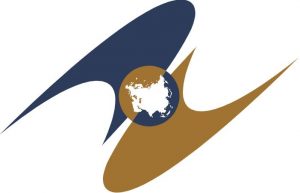Last week, Russian Deputy Foreign Minister Alexander Pankin suggested in an interview on the sidelines of the St. Petersburg International Economic Forum (SPIEF) that the Eurasian Economic Union (EAEU) was working on a “consolidated response” to Western sanctions against its members.
Over the weekend, Kazakhstan made clear that it has no interest in “politicizing” the EAEU.
The EAEU, formally an economic bloc, counts Russia, Belarus, Kazakhstan, Kyrgyzstan, and Armenia as full members, and Moldova, Cuba, and Uzbekistan as observers. The organization, as Evgeny Troitskiy wrote on occasion of the EAEU’s fifth anniversary in January 2020, “evolved out of a number of failed attempts at integrating the economies of post-Soviet countries.” Kazakhstan’s First President Nursultan Nazrabayev, now honorary chairman of the EAEU’s top body, suggested the creation of a Eurasian Union in a 1994 speech, but the body as it exists today is often viewed as a Russian project.
This tension may explain why Kazakhstan reacted so strongly to any suggestion that the EAEU could be a vehicle for anything other than economic matters in the region.
In a June 5 statement, the Kazakh Foreign Ministry made clear that it wants the EAEU to stick to its initial mission. “[T]he purpose of the association is to ensure the freedom of movement of goods, services, capital and labor, to create conditions for the stable development of the economies of the member states in order to improve the well-being of their peoples.”
“Kazakhstan adheres to the position that the integration processes within the EAEU are of a purely economic nature.”
The statement comments on the “unacceptability” of using the EAEU and its bodies for political purposes and then states directly that “the application of retaliatory measures to sanctions actions of third countries” falls squarely under the category of matters beyond the EAEU’s mandate.
In the statement, Kazakhstan makes clear that it views Western sanctions as political and directed against specific states, not the EAEU, and thus not an EAEU issue.
Of the EAEU members, Russia and Belarus have been targeted by various sanctions measures in recent years. In April, the United States announced a new round of sanctions against Russia in response to alleged Russian attempts to influence the 2020 presidential election as well as Russian involvement in various cyberattacks.
Belarus has been hit most recently by sanctions resulting from its diverting of a commercial airplane flying over the country on its way from Greece to Lithuania. After forcing the jet down under false pretenses, Belarusian authorities arrested one of the passengers: dissident journalist Roman Protasevich. The European Union condemned the action and promised economic sanctions. On June 4, the EU announced a ban on Belarusian airlines flying over European Union territory or landing in the EU. Further action is expected from both the EU and also the G-7, which is scheduled to meet on June 11.
Russia has defended Belarus’ actions. After NATO Secretary General Jens Stoltenberg warned Russia and Belarus against “destabilizing actions” and said that the Belarus issue would be a topic of discussion at the upcoming June 14 NATO summit, the Russian Foreign Ministry fired back. Russian Foreign Ministry Spokeswoman Maria Zakharova said NATO was meddling in the Belarus-Russia bilateral relationship to prevent their integration. “Here is the answer to a question why the West is dealing with Belarus so fiercely. Normal effective cooperation between the two countries is not part of NATO’s plans.”
Pankin’s comments regarding the EAEU working on a “consolidated response” underscores the increasing isolation of Russia and Belarus, particularly when it comes to the Protasevich matter. Kazakhstan’s strong opposition illustrates Nur-Sultan’s desire to avoid being dragged into the mess in Europe, no matter its close political, economic, and cultural ties to Russia.













